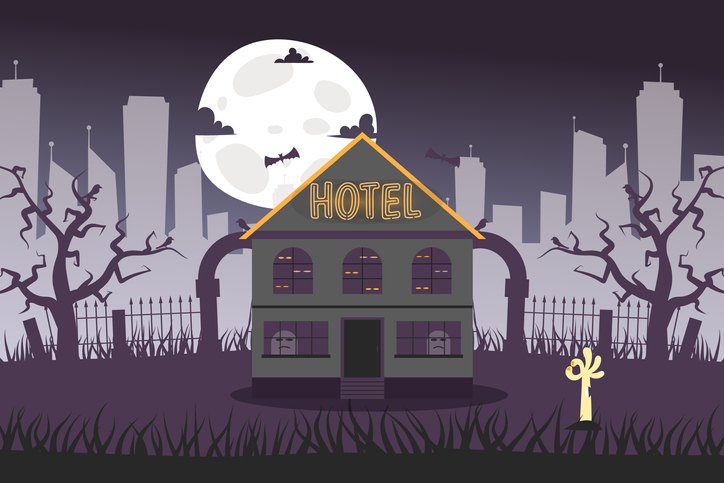Not exactly a new trend per se, but recently haunted hotels – under the broader banner of ghost tourism – have gained a niche following, with many promoting stories of their spooky pasts as a means of drumming up free eyeballs and, hopefully, bookings. The underlying marketing lesson is that you have to have a shtick, and this goes far beyond just haunted hotels.
Do a quick Google search and you’ll realize that there are numerous lists for such abodes or ghost tours, and it is indeed becoming a cottage industry of hospitality. As a caveat here, some properties are on the losing end of this trend because their grounds acted as a scene of a truly gruesome event – likely combined with a total lack of renovations and FF&E replacements over the decades – instead of a more fictionalized recount.
As it relates to the shtick of the matter, the impresarios behind each haunted hotel have essentially found a way to cut through the noise of marketing a hotel in a world of limited operating budgets and accommodation commoditization.
Like many things, this isn’t a novel emergence from COVID-19, although the pandemic has certainly accelerated the hotel industry along its trajectory. As global travel recovers, hotels are still recouping their losses born from all the lockdowns and flight restrictions, meaning that available money for paid advertising will likely be thin for next few cycles.
Compounding this is the whole commodification dilemma where hotels are slowly being reduced to base products without meaningful differentiation amongst disparate brands. With so many aggregated and now wholly dominant travel search websites – OTAs, tour operators, metasearch and alternate lodging platforms as four big ones – the value of any specific brand is being diluted, often to the point of total interchangeability in the guest’s eyes. When that happens, it becomes a race to the bottom with customers only looking for ever-cheaper beds.
Hence, a potential solution to both of these problems is in finding said shtick – something poignant, terse and viscerally stirring that can be used for grassroots, zero-base promotional efforts. If you can find that one unique thing that differentiates your properties from the comp set – or, better, one that can motivate customers to consider routing their entire trip itinerary around a stay at your hotel – then this can serve as a powerful brand story that carries memorability and hinders apples-to-apples commodity comparisons.
While it would be difficult (to say the least) to engineer a hotel to be deemed haunted, there are innumerous other ways to stand apart from the crowd. Some properties need only promote their location, be it proximity to key attractions or centers of commerce, or picturesque views that are wholly embellished in every piece of sales collateral. Other brands aim to find uniqueness through exceptional F&B, wellness or activities (onsite such as an adjacent golf course or through local partners).
You need something to cut through the noise, but then once you have identified it you have to wholly embrace it through simplified messaging. True, a hotel can be many things to many people. However, to get people to show an initial interest so that they choose to devote more attention to your full slate of offerings, you need that one thing.
